Japan is known as one of the safest countries in the world, but troubles can occur during any trip. Language barriers and cultural differences can turn small problems into significant sources of stress when traveling abroad. This article provides detailed information on how to deal with potential issues during your trip to Japan and how to prevent them in advance. We aim to provide practical information to help international visitors enjoy a safe and fulfilling journey in Japan.
- Dealing with Sudden Illness or Injury
- Dealing with Theft or Loss
- Dealing with Transportation Issues
- Solving Language Communication Issues
- Response to Disasters and Disaster Prevention Knowledge
- Dealing with Food and Allergy Issues
- Solving Accommodation Issues
- Japan’s Travel Support Services
- Advice for a Safer and More Enjoyable Trip to Japan
- Conclusion
Dealing with Sudden Illness or Injury
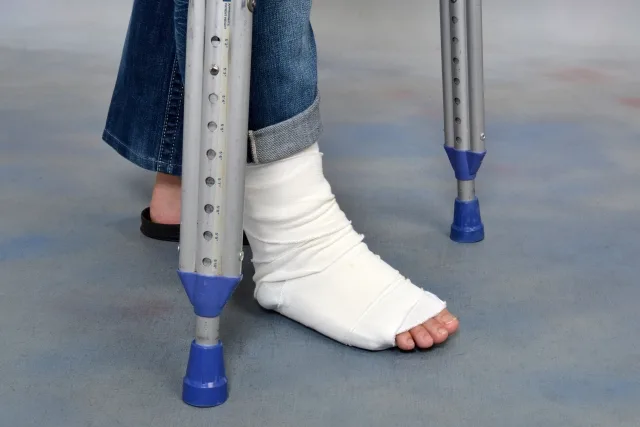
Basic Response When Symptoms Appear
Anyone can fall ill or get injured while traveling in Japan. This can be due to climate changes, long periods of travel, or unfamiliar food.
For mild symptoms:
- Japanese drugstores sell basic medications such as cold medicine, stomach medicine, and pain relievers
- Many stores have products with English labels, but it’s advisable to explain your symptoms to the pharmacist for appropriate recommendations
- Major chains like “Matsumoto Kiyoshi,” “Welcia,” and “Tsuruha Drug” increasingly have staff who can communicate in foreign languages
For severe symptoms:
- Seek medical attention immediately
- The front desk staff at your accommodation can often recommend nearby hospitals
- In emergencies, call “119” for an ambulance (English assistance available)
How to Visit Medical Institutions
Japanese medical institutions are high-quality, and major cities are increasingly equipped to accept foreign patients. However, systems and procedures differ between countries, so keep these points in mind:
- Finding medical facilities that can assist foreigners: The “Japan Visitor Hotline (050-3816-2787)” provides information on medical institutions 24 hours a day, 365 days a year in English, Chinese, Korean, and other languages
- Bring your insurance certificate and cash: If you have overseas travel insurance, bring your insurance certificate, and prepare sufficient cash as Japanese medical institutions primarily accept cash payments
- Prescription medications: Medications requiring a prescription can be received at the hospital or a nearby pharmacy
Useful Medical Phrases
Learning basic Japanese phrases can help with communication at medical institutions:
- “Itai desu” (痛いです): It hurts
- “Netsu ga arimasu” (熱があります): I have a fever
- “Atama ga itai desu” (頭が痛いです): I have a headache
- “Onaka ga itai desu” (お腹が痛いです): I have a stomachache
- “Arerugī ga arimasu” (アレルギーがあります): I have allergies
Dealing with Theft or Loss
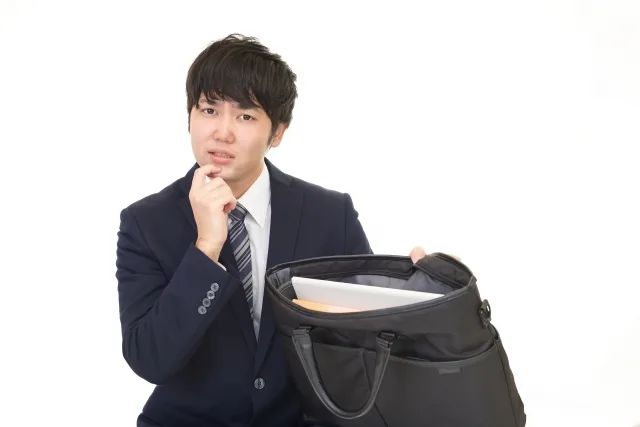
If You Lose Your Passport
Losing your passport is one of the most serious problems during overseas travel. Follow these steps calmly:
- Report to the nearest police station: File a lost item report. While English-speaking police stations are limited, many in major tourist areas and cities can assist
- Contact your country’s embassy or consulate in Japan: Apply for a temporary passport. You can find details about required documents and procedures on your embassy or consulate’s website
- Contact your airline: If you need to change your return flight, contact them early
- Explain the situation to your accommodation: This may affect check-in or check-out procedures
If Your Wallet or Valuables Are Lost or Stolen
Although Japan is known for its safety, there is still a risk of theft in tourist areas and crowded places. If you lose your wallet or valuables or they are stolen, follow these steps:
- Suspend credit cards: Contact your card company immediately to suspend their use
- Report to the police: File a theft report in case of theft or a lost item report in case of loss
- Check lost and found centers: In Japan, found items are taken to the nearest police station or police box and later kept at lost and found centers. Items lost on public transportation such as trains or taxis have a high chance of being found
What to do if you run out of cash:
- Use international money transfer services (such as Western Union)
- Receive emergency money transfers from friends or family
- Consult your embassy or consulate (some countries have emergency loan systems)
Tips for Managing Valuables and Preventing Theft
To prevent troubles during your trip to Japan, pay attention to the following:
- Keep a copy of your passport separately: It’s reassuring to save both paper copies and electronic versions on devices like smartphones
- Distribute valuables: Don’t keep all cash and cards in one place; carry them separately
- Use the hotel safe: Store valuables you don’t need to carry in your accommodation’s safe box
- Be especially careful in crowded places: Always be mindful of your bags and belongings in crowded areas such as getting on and off trains or at tourist spots
Dealing with Transportation Issues
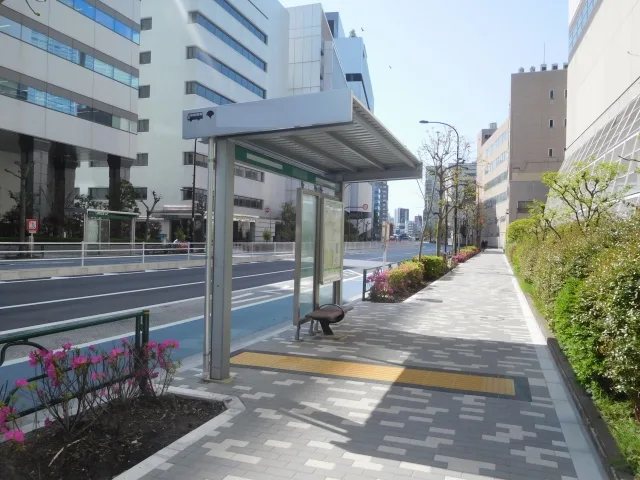
If You Miss Your Train or Bus Stop
Japanese public transportation runs on an accurate schedule, but language barriers and complex route maps may cause you to miss your destination. Stay calm and respond as follows:
- Take a train going in the opposite direction: In many cases, you can return to the original station by taking a train from the opposite platform
- Ask a station attendant: Japanese station staff are helpful. Staff at major stations may be able to assist in English
- Use a transit app on your smartphone: Apps like “Japan Transit Planner” or “Google Maps” can help you find alternative routes
About Buying Tickets and IC Transit Cards
In Japan, having a transit IC card (Suica, PASMO, ICOCA, etc.) saves you the trouble of buying tickets and allows for smooth travel.
- How to purchase IC transit cards: Available at ticket machines or counters at major stations. A deposit is required but refunded when returned before leaving Japan
- How to add money (charge): You can charge your card at station ticket machines or convenience stores
- Range of use: Can be used not only for trains and buses but also at convenience stores, vending machines, and various other places
Preventing Taxi Troubles
Japanese taxis are clean and safe, but communication problems may arise due to language barriers.
- Prepare a note with your destination: It’s convenient to have the address or name of your destination written in Japanese
- For major tourist spots: Taxi drivers usually understand if you show them the name of a tourist spot
- Use taxi apps: With apps like “Japan Taxi” or “GO,” you can enter your destination in advance, making the process easier
Advance Preparation to Prevent Transportation Issues
- Download maps that work offline: These can be used even in places without Wi-Fi
- Note down the Japanese names of your main destinations: The name and address of your accommodation are essential
- Check timetables and route maps in advance: Be sure to check the time of the last train
- Purchase an IC transit card: If you plan to use public transportation frequently, it’s convenient to buy one at the beginning of your trip
Solving Language Communication Issues

Basic Communication Methods
While English assistance is growing in tourist areas in Japan, it’s still not sufficient. Try combining the following methods for smooth communication:
- Use simple English: Avoid complex expressions and abbreviations; communicate with basic words and short sentences
- Use gestures: Adding gestures often helps with understanding
- Show pictures or maps: Visual aids are often more effective than verbal explanations
- Use translation apps: Apps like “Google Translate” or “DeepL” have conversation modes that enable real-time translation
Useful Communication Tools
- Translation devices and apps: Use translation devices like “Pocketalk” or smartphone translation apps
- Multilingual tourist information centers: Major tourist areas have information centers with the “Japan i” mark that provide assistance in multiple languages including English
- Restaurants with multilingual menus: You can search for restaurants with multilingual menus on gourmet sites like “Gurunavi” or “Tabelog”
Communication Methods in Emergencies
In emergencies such as sudden illness or trouble, you can use the following support services:
- Japan Visitor Hotline (050-3816-2787): Provides tourist information, disaster information, hospital referrals, and other services 24 hours a day, 365 days a year in English, Chinese, Korean, and Japanese
- Police Consultation Phone (# 9110): Responds to consultations other than crimes and accidents (English assistance is limited)
- Multilingual Medical Institution Search Site “JNTO”: You can search for medical institutions that can assist in foreign languages on the Japan National Tourism Organization website
Response to Disasters and Disaster Prevention Knowledge
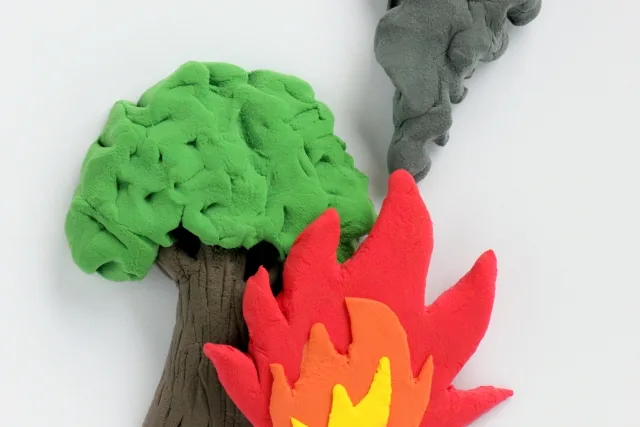
In Case of an Earthquake
Japan is an earthquake-prone country, and you may experience an earthquake during your stay. Knowing how to respond appropriately will help you act calmly.
If you are indoors:
- Hide under a table or desk
- Open doors to secure an evacuation route
- Avoid using elevators; use stairs instead
- Evacuate outside calmly after the shaking stops
If you are outdoors:
- Stay away from buildings, utility poles, and vending machines
- Protect your head with your bag or belongings
- Move to an open space like a park or plaza
Responding to Typhoons and Heavy Rain
The typhoon season is from summer to autumn, and transportation disruptions and tourist spot closures may occur due to heavy rain.
- Check weather information frequently: Get the latest information from the “Japan Meteorological Agency” English website or various weather apps
- Check transportation information: Bullet trains (Shinkansen) and flights are likely to be delayed or canceled when typhoons approach, so it’s necessary to check in advance
- Follow evacuation instructions: Follow the instructions of hotel staff or local authorities and move to designated evacuation centers if evacuation is necessary
How to Get Information During Disasters
- Disaster information app “Safety tips”: An app that provides emergency information about earthquakes, tsunamis, typhoons, and more in multiple languages
- NHK WORLD JAPAN: Strengthens English information provision during disasters
- Local government disaster information sites: Many local governments operate disaster information pages in English
Disaster Preparation Items and Advance Preparation
Consider the following disaster prevention measures when traveling to Japan:
- Check evacuation routes at your accommodation: Confirm the location of emergency exits and evacuation stairs when checking in
- Prepare portable disaster prevention items: It’s reassuring to have a flashlight, mobile battery, drinking water, simple food, etc.
- Create an emergency contact list: Note down embassy/consulate contact information, accommodation information, family contacts, etc.
Dealing with Food and Allergy Issues
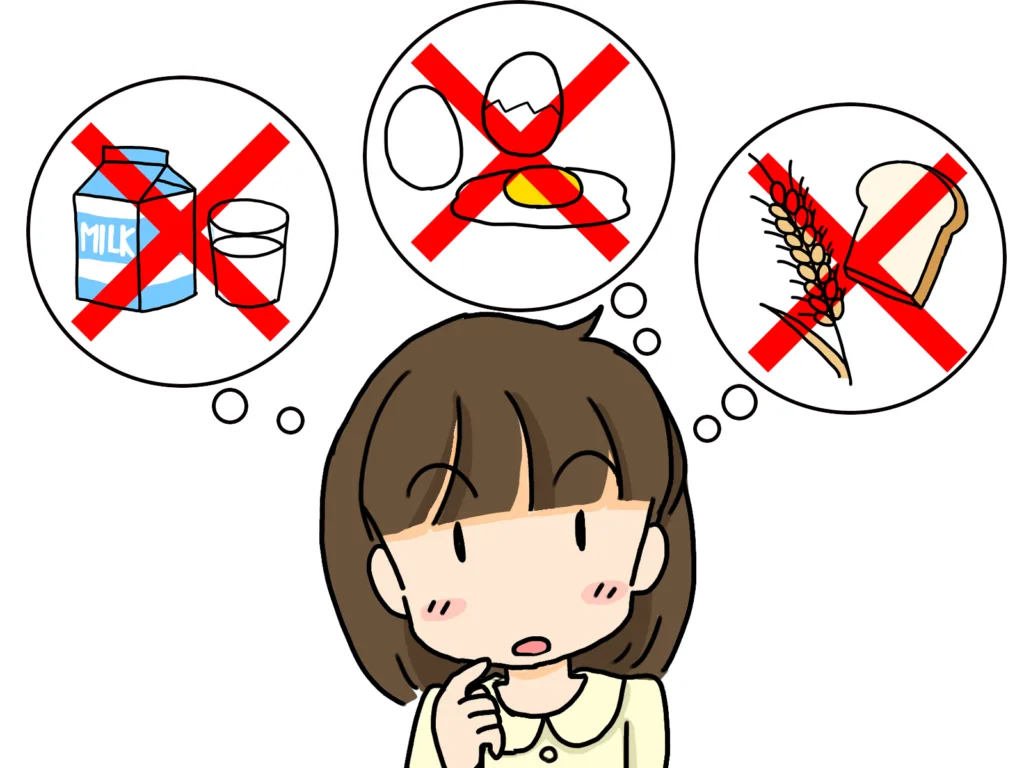
How to Deal with Food Allergies
Japanese cuisine uses various ingredients, and those with allergies need to be careful. Implement the following measures:
- Prepare an allergy information card: Create a card with your allergy information written in Japanese and present it at restaurants
- Choose restaurants with multilingual menus: Especially in tourist areas, restaurants with English ingredient listings are increasing
- Choose simple dishes: For peace of mind, choose dishes with easily identifiable ingredients rather than those with complex cooking methods or many ingredients
Solutions for Those with Dietary Restrictions
The number of people with vegetarian, vegan, halal, and other dietary restrictions is increasing. With advance preparation and ingenuity, you can have a comfortable dining experience.
- Research specialized restaurants in advance: You can search for vegetarian and vegan-friendly restaurants using apps or websites like “Happy Cow”
- Halal-friendly restaurant information: Find halal-friendly establishments on sites like “Halal Gourmet Japan”
- Consult with your accommodation in advance: Especially at traditional Japanese inns (ryokan), they may accommodate dietary restrictions if informed in advance
How to Order at Restaurants
Many people feel anxious about ordering at restaurants due to language barriers. Try the following techniques:
- Choose restaurants with picture menus: Especially in tourist areas, many restaurants have picture menus or display food samples
- Point-and-order: You can order just by pointing at menus or food samples
- Use smartphone translation features: You can check the content by using features that translate menus through the camera
Solving Accommodation Issues
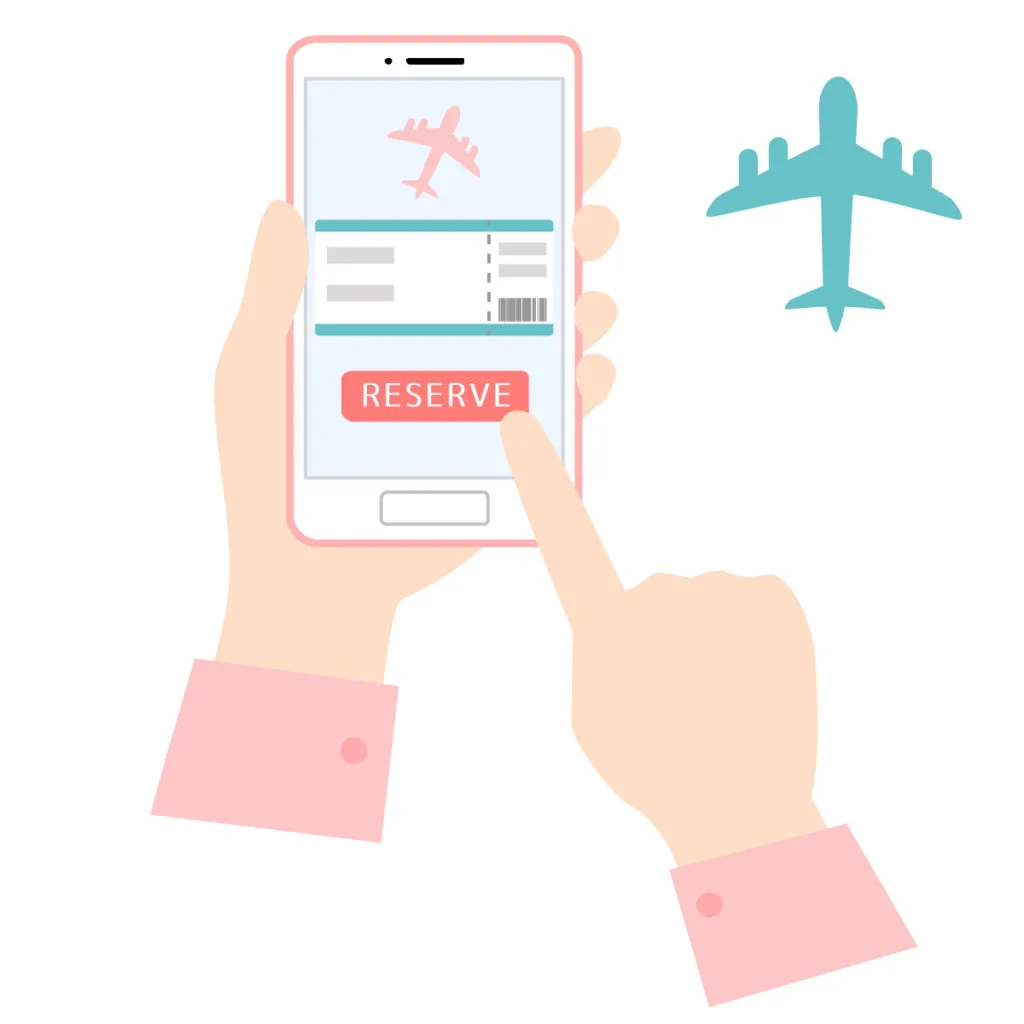
If the Room Differs from Your Reservation
If the actual room differs from what you reserved, calmly respond as follows:
- Clearly communicate the problem to the front desk: Explain specifically which aspects differ from the reservation
- Show your reservation confirmation email or reservation site screen: Providing evidence makes resolution easier
- Ask for alternative options: Negotiate for a change to a room of equivalent or higher grade, or a reduction in rates
Wi-Fi and Facility Issues
- Wi-Fi connection problems: Japanese hotels usually provide free Wi-Fi, but if you have connection problems, consult the front desk. Consider renting a mobile Wi-Fi device
- How to use air conditioners and water heaters: Japanese equipment may operate differently from those in other countries. Check the instructions or ask the front desk about usage
- Noise issues: If there is noise from an adjacent room, it’s best to consult the front desk rather than addressing it directly
Etiquette at Hot Springs and Hotels
Japanese accommodations and hot springs have unique manners and customs. To avoid problems, know the following points:
- How to enter hot springs (onsen): Follow basic manners such as washing your body before bathing and not putting towels in the bath
- How to stay at traditional inns (ryokan): Ask staff if you’re unsure about when to take off shoes, how to wear yukata (casual kimono), how to lay out futon bedding, etc.
- Check-in and check-out times: Japanese hotels are often strict about time, so adhere to the schedule
Japan’s Travel Support Services
Comprehensive Information Services for Foreign Visitors
The Japan National Tourism Organization (JNTO) provides various support services for foreign travelers.
- Japan Visitor Hotline (050-3816-2787): Provides a wide range of support from tourist information to emergency response 24 hours a day, 365 days a year in multiple languages
- Tourist Information Centers: Information centers at major stations and tourist spots provide tourist information and advice for problems
- Japan Travel Guide App: A tourist information app usable offline that also lists emergency contacts
Information About Tourist Information Centers in Major Tourist Areas
Various services are available at local tourist information centers, including maps, tourist brochures, transportation guidance, and accommodation recommendations.
- Tokyo: Tokyo Tourist Information Centers (Tokyo Station, Asakusa, Shinjuku, etc.)
- Kyoto: Kyoto Tourist Information Center (inside Kyoto Station Building)
- Osaka: Osaka Tourist Information Center (Osaka Station, Namba Station, etc.)
- Other major cities: Most major stations and tourist areas have tourist information centers
Specialized Counters for Problem Response
Specialized counters are also set up to deal with specific problems.
- Japan Helpline (0570-000-911): Provides lifestyle and medical information in multiple languages
- Police Consultation Phone (# 9110): Responds to consultations other than crimes and traffic accidents
- Each country’s embassy or consulate: Provides services to protect their citizens
Advice for a Safer and More Enjoyable Trip to Japan
Pre-departure Checklist
To prevent problems in advance, prepare the following before departure:
- Join overseas travel insurance: We recommend insurance with sufficient coverage as medical expenses can be high
- Get necessary vaccinations: Consider preventive measures especially if there are seasonal infections like influenza
- Bring sufficient prescription medications: Since overseas prescriptions cannot be used in Japan, bring enough medication
- Prepare credit cards and cash: Japan still has aspects of a cash society, so you should prepare sufficient cash
Regional Considerations and Measures
There are different characteristics and considerations depending on the region. Understand the measures for each major tourist area:
- Major cities like Tokyo and Osaka: Be cautious of pickpocketing in crowded areas and in entertainment districts at night
- Ancient capitals like Kyoto and Nara: Follow manners for cultural property protection and rules when traveling by bicycle
- Cold regions like Hokkaido and Tohoku: Take cold protection measures in winter and check communication environments in mountainous areas
- Beach resorts like Okinawa: Be aware of sea dangers (jellyfish and currents) and swim in designated areas
Seasonal Measures and Advice
Japan has distinct seasons, and different measures are necessary for each season.
- Spring (March-May): Prepare masks and eye drops for hay fever prevention and clothing that can adapt to temperature differences
- Summer (June-August): Heat stroke prevention is important in the hot and humid climate. Also pay attention to typhoon season transportation information
- Autumn (September-November): The influence of typhoons may still remain during this period, and attention to weather changes is necessary
- Winter (December-February): Prepare for heavy snow especially on the Sea of Japan side and in mountainous areas, with warm clothing and non-slip shoes
Conclusion
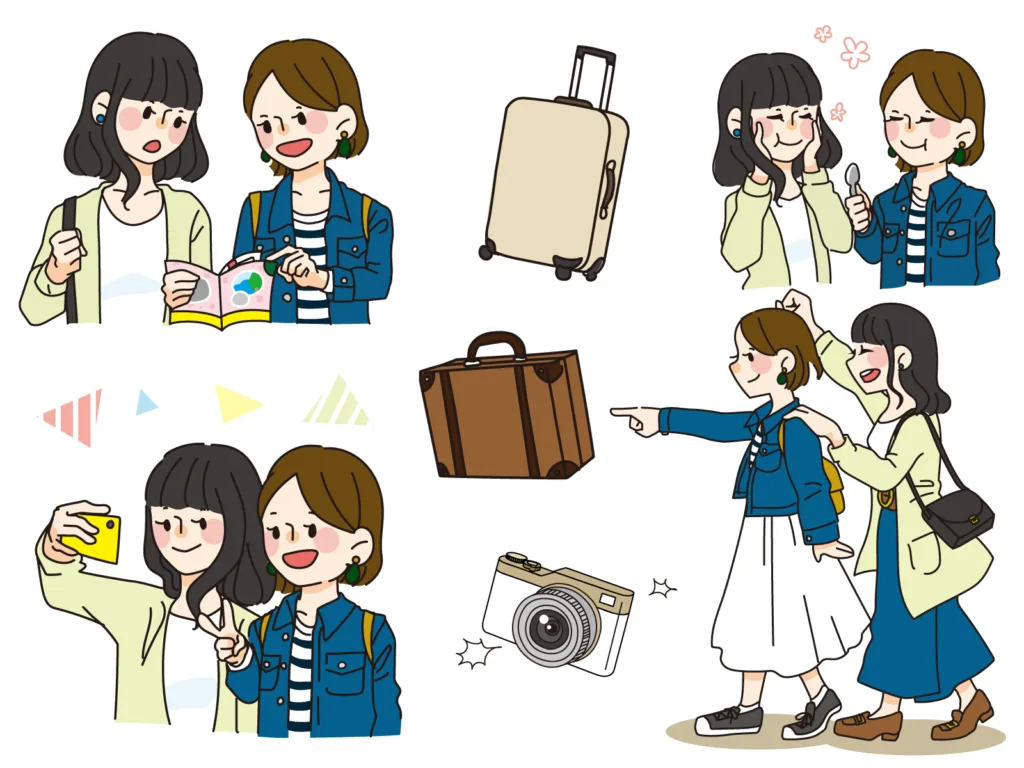
Troubles during a trip to Japan can be resolved without developing into major problems with proper advance preparation and response knowledge. Use the solutions and prevention measures introduced in this article to enjoy your trip to Japan with peace of mind. The key points are as follows:
- Thoroughly prepare in advance: Insurance enrollment, gathering necessary information, checking belongings, etc.
- Save emergency contact information: Japan Visitor Hotline, embassy/consulate, accommodation, etc.
- Understand cultural and customary differences: Respect Japan’s unique manners and rules
- Utilize local support services: Actively use tourist information centers and multilingual services
Japan is a country that welcomes foreign tourists, and many Japanese people will voluntarily help foreigners in trouble. Don’t be afraid of language barriers; strive for smooth communication using smiles, gestures, and basic Japanese phrases.
It defeats the purpose if fear of trouble prevents you from enjoying your trip. After appropriate preparation, fully enjoy Japan’s rich culture, beautiful nature, and delicious food. We hope you create wonderful memories of your trip to Japan.
References:
- Japan National Tourism Organization (JNTO), “Safety Information for Foreign Visitors,” https://www.japan.travel/en/tips/emergency/, accessed April 28, 2025
- Japan Tourism Agency, “Emergency Measures to Ensure the Safety and Security of Foreign Travelers,” https://www.mlit.go.jp/kankocho/news08_000323.html, accessed April 28, 2025
- Tokyo Metropolitan Government, “Disaster Prevention Guide for Foreign Tourists,” https://www.bousai.metro.tokyo.lg.jp/foreign/index.html, accessed April 28, 2025



コメント